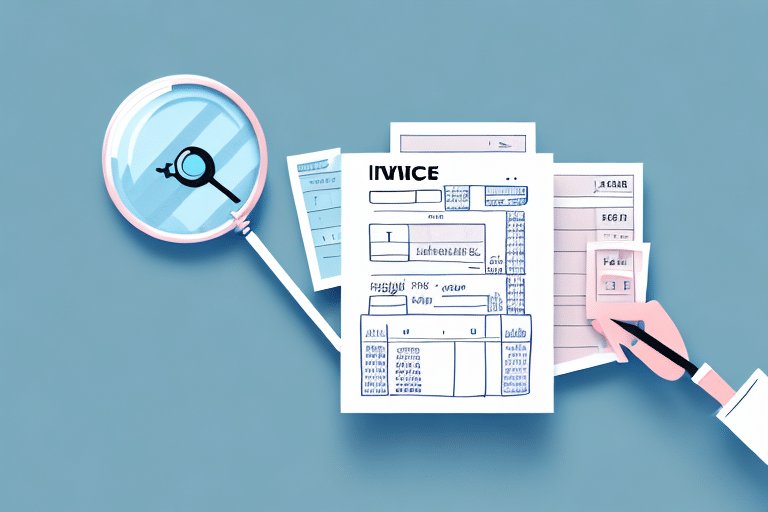The Benefits of Freight Invoice Auditing
Freight invoice auditing is a critical process for supply chain and logistics companies aiming to optimize their operations. This article explores the key reasons why freight invoice auditing is essential for businesses, delves into the components of an effective audit process, examines its impact on supply chain management, and highlights the latest advancements in auditing technology.
Importance and Benefits of Freight Invoice Auditing
Cost Reduction and Financial Savings
Freight invoice auditing plays a vital role in identifying and eliminating errors, overcharges, and discrepancies within freight invoices. According to a study by the Institute of Finance & Technology (IoFT), companies can recover up to 5% of their annual freight spend through effective auditing. These savings directly enhance the bottom line and contribute to overall financial health.
Operational Efficiency
By systematically reviewing freight invoices, businesses can streamline their shipping processes. Analyzing shipping data helps in making informed decisions about carrier selection, routing, and packaging, leading to reduced transit times and lower shipping costs. Enhanced operational efficiency also results in improved customer satisfaction due to more reliable and faster deliveries.
Fraud Prevention and Compliance
Freight invoice auditing is instrumental in detecting potential fraud or theft by reviewing invoices and tracking shipments for irregularities. Ensuring compliance with industry regulations and contractual agreements not only prevents financial losses but also protects the company’s reputation. Adhering to standards set by organizations like the U.S. Customs and Border Protection ensures lawful and ethical operations.
Conducting a Successful Freight Invoice Audit
Comprehensive Review of Invoices
A thorough audit involves scrutinizing all invoices and supporting documentation. It is essential to understand industry regulations and the specific terms of contracts to verify that all charges are accurate and justified. This includes checking shipping details, transport modes, carriers, and rates to ensure consistency and correctness.
Identifying Discrepancies and Errors
Common errors such as incorrect billing amounts, duplicate charges, and misapplied accessorial fees can be uncovered through diligent auditing. Communicating these discrepancies with carriers or vendors is crucial for resolving issues and reclaiming overpaid amounts. Effective error correction not only saves money but also enhances logistics efficiency.
Best Practices for Audit Implementation
- Establish Clear Audit Procedures: Define standardized processes for reviewing invoices.
- Involve Stakeholders: Ensure collaboration between finance, logistics, and procurement teams.
- Maintain Accurate Records: Keep detailed documentation of all transactions and audits.
- Stay Updated with Regulations: Continuously monitor changes in transportation laws and industry standards.
Technology and Innovations in Freight Invoice Auditing
Automated Auditing Systems
Advancements in technology have revolutionized freight invoice auditing. Automated systems leverage machine learning algorithms to quickly identify discrepancies and errors, significantly reducing the time and resources required for manual audits. These systems enhance accuracy and provide real-time insights into freight costs.
Real-Time Shipment Tracking
Integrating real-time tracking with auditing processes offers greater visibility and control over the supply chain. Tools like the Internet of Things (IoT) devices facilitate proactive issue identification and resolution, minimizing disruptions and optimizing logistics operations.
Data Integration and Analytics
Modern auditing technology integrates with other business systems such as accounting and procurement, enabling comprehensive data analysis. Advanced analytics provide valuable insights into shipping patterns, cost drivers, and carrier performance, empowering businesses to make data-driven decisions that enhance supply chain efficiency.
Measuring Success: Key Performance Indicators (KPIs)
Cost Savings Achieved
Tracking the total cost savings resulting from freight invoice audits is a primary KPI. This includes recovering overpaid amounts and negotiating better rates with carriers based on audit findings.
Error Detection Rate
The number and types of errors identified during audits serve as indicators of audit effectiveness. A higher detection rate signifies a more thorough and successful auditing process.
Audit Efficiency
Measuring the time and resources required to complete audits helps in assessing the efficiency of the auditing process. Streamlining procedures to reduce audit duration without compromising accuracy is essential for maximizing benefits.
Percentage of Invoices Audited
Assessing the proportion of total invoices audited ensures that a significant sample size is reviewed to uncover potential errors and cost-saving opportunities.
Impact of Freight Invoice Auditing on Supply Chain Management
Enhanced Cost Visibility
Freight invoice auditing provides a transparent view of shipping costs, enabling better budget management and cost control. Understanding where expenses are incurred allows businesses to allocate resources more effectively.
Improved Carrier Relationships
By regularly auditing invoices and addressing discrepancies, businesses build trust and accountability with carriers. Transparent billing practices foster stronger partnerships and encourage carriers to maintain competitive pricing.
Optimized Supply Chain Operations
Insights gained from auditing help in refining supply chain strategies, such as optimizing inventory levels, reducing handling times, and selecting the most efficient shipping routes. These optimizations lead to a more responsive and resilient supply chain.
Conclusion
Freight invoice auditing is an indispensable tool for businesses seeking to reduce costs, enhance operational efficiency, and ensure compliance with industry regulations. By implementing best practices and leveraging advanced auditing technologies, companies can gain comprehensive insights into their shipping expenses and make informed decisions that drive long-term success.
Moreover, continuous monitoring and improvement of the auditing process help businesses stay competitive in a dynamic market. Embracing freight invoice auditing not only safeguards financial interests but also contributes to the overall effectiveness and reliability of the supply chain.






















